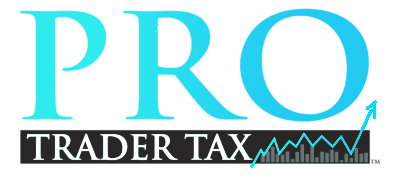Keeping a higher percentage of your after-tax profits and paying the IRS the minimum legally required amount should be every trader’s goal. Business traders are eligible for several tax breaks that are not available to investors. These trader tax benefits are not widely publicized and most accountants do not understand them. With combined federal and state tax rates as high as 40% – 45% in some cases, it is important to become educated about the tax benefits offered to traders.
There are three potential tax classifications an individual investing or trading the financial markets can fall into: (1) investor; (2) business trader (cash accounting method), and; (3) business trader (mark-to-market accounting method). By default, the IRS classifies everyone as an investor. The determination as to whether an individual’s trading constitutes a “trade or business” has considerable tax implications for the individual taxpayer.
For the most part, individuals whose trading activity constitutes a “trade or business” receive more favorable tax treatment than their counterparts who are categorized as investors. Investors do receive preferential treatment for long-term capital gains and qualified dividends, but that is where the benefits stop. Active business traders, on the other hand, enjoy a wealth of tax benefits. For example, the investor classification requires that investment expenses be deducted on Schedule A of Form 1040 and subject to adjusted gross income thresholds. Business trader status, on the other hand, allows for trading expenses to be deducted without any adjusted gross income thresholds. Trading expenses can be deducted as a business expense on Schedule C of Form 1040 or on a business entity tax return, such as Form 1065 or 1120S.
If a taxpayer meets the stringent IRS tests to qualify as an active business trader, the trader is able to deduct trading related expenses such as seminars, books, journals, software, newsletters, computer equipment, home office related deductions and margin interest expense. These are considered “above-the-line” deductions and are fully deductible in most cases. Where these expenses are reported on a taxpayer’s tax return depends on whether the taxpayer is unincorporated or has a separate legal business entity.
The Taxpayer Relief Act of 1997 created substantial tax advantages for active business traders, or what we refer to as Pro Traders. The 1997 tax legislation included new code sections (sec. 475(e) and 475(f)) allowing active business traders to elect Mark-to-Market (MTM) accounting. Electing the MTM accounting method enables traders to deduct their trading losses as ordinary losses rather than capital losses. Being able to deduct your trading losses as ordinary is a huge tax benefit. In comparison, investors are limited to deducting only $3,000 per year in net losses. Many traders start out losing money until they gain the experience and confidence to become profitable. Making the MTM election is like having an insurance policy. If a profitable trader has a losing year, he or she is able to deduct their losses as ordinary and offset other types of income such as a part-time salary, a spouse’s salary, interest and dividend income, etc.
The tax treatment of gains, losses and related expenses depends on the individual’s classification as either an investor, trader, or mark-to-market trader. There are varying tax rules for each classification. How gains and losses are classified for tax purposes also depends on what’s being traded. Futures and commodity traders enjoy a blended 60% long-term / 40% short-term tax rates no matter how long they hold the contract for. So in most cases, there is no need for the futures trader to elect MTM accounting.
Qualifying for trader status or electing the mark-to-market accounting method is not easy. We have seen a few traders try to do this on their own or have their local accountant attempt to file the MTM paperwork. We were called in to clean up the mess. Make sure you hire someone that has experience in this area. We have worked with many traders in determining if they qualify for business trader status, making the mark-to-market election, setting up their trading business entities and preparing their trader tax returns. If you have questions or would like our help in this area, please contact us at 720-253-1464 (or toll-free at 888-666-7145) or email us at al.davidson@protradertax.com.
